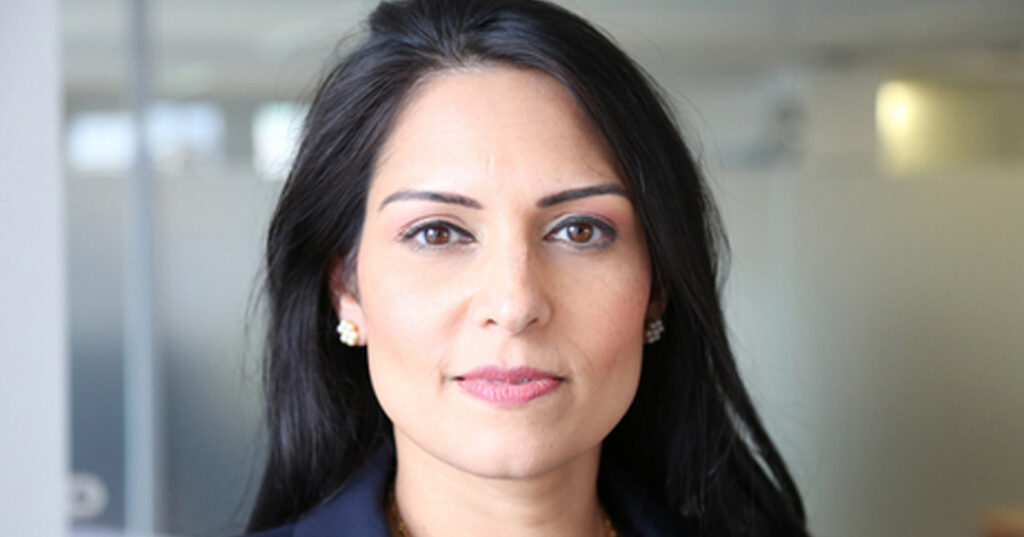
I am a fan of Priti Patel. She is not one of those posh politicians off the public school and Oxbridge production line, nor the sort of mealy-mouthed minister scared to say what she really thinks on issues. She was on the right side of the Brexit campaign, making strong calls for Britain to regain control over our own affairs. So I was pleased to see Theresa May give her a key cabinet role as secretary of state for international development.
I suspect, however, Patel did not share my joy and relish the task of being asked to dole out billions of pounds taken from British taxpayers. She has been critical of DfID in the past, once even calling – sensibly in my opinion – for it to be scrapped and folded into the Foreign Office. This job is a rather poisoned chalice for any real conservative. Perhaps she thought the same as her predecessor Justine Greening, who was reported to have responded furiously to the job offer by saying she had not entered politics to chuck away cash overseas. But soon Greening was making dutiful speeches along the usual spurious lines about ‘smart aid’ and ending poverty.
Patel may have changed her tune already on the existence of her new department. Yet she remains a critic of its excesses and has challenged the complacency of a close-knit group of officials, charities and private sector firms feeding off the enforced benevolence of taxpayers. She talked in debut statements of an aid approach built on “core conservative principles” and insisted too much money was being stolen, not enough reaches people most in need and voters are left infuriated when hard-earned money gets “wasted on inappropriate projects”.
Her instincts seem right when it comes to reform of her department, which as other critics have said often seems to act like an offshoot of the charity world rather than an arm of government. She suggests British aid money should work in national interests, a radical concept for many of those spreading it around the world on often-questionable schemes. She says policies should be based on the idea that wealth creation rather than aid dependancy is the best way to eradicate poverty – and that this dynamic is powered by people rather than states. She believes the poor should not be treated as passive recipients of support, as they are so often at present. Finally, she aims to use aid as a weapon to deter mass migration to our shores, recognising concerns felt by much of the electorate.
I find it hard to quibble with these sentiments. Certainly there can be no doubt commerce and capitalism have lifted hundreds of millions of people from poverty in recent decades, while also improving health prospects and extending life expectancy. We have never seen such human advancement, good news that is sometimes forgotten amidst the daily diet of headlines filled with doom and gloom. Sadly, it is also true that it is hard to detect much discernible impact of the billions blown on aid by rich nations over decades, while the powerful aid industry can be patronising towards the people it proclaims to be saving.
But for all this, and with great regret, I fear Patel will not succeed in her laudable aims. For a start, aid is a very blunt instrument that often does more harm than good. Angus Deaton, Britain’s most recent Nobel-winning economist, is merely the most prominent among experts who point out that the global torrents of aid pour into poor or conflict-torn nations that do not have the means to handle such huge flows of money. The result can be more corruption, more conflict, more chaos – weakening noble efforts of local people struggling to hold venal leaders to account and slowing the spread of democracy.
It is hard to argue with this analysis when you look at some of Britain’s aid darlings such as Afghanistan, Ethiopia, Rwanda and Pakistan. No doubt the new government will do its best to shift aid spending into other departments – most notably into the dreadfully underfunded defence budget – to cover some of their costs, but this is restrained by strict international rules on what counts as Official Development Assistance. And while cash can be spent on attempting to turn the tide of migrants, the reality is that migration is driven by war, repression and, perhaps counter-intuitively, prosperity. It takes money to move around the world and pay those people-smugglers. So whether you believe in aid lifting people from poverty or just fear that Britain is assisting some appalling regimes, either way it is not going to stop all those Africans and Asians from heading our way.
The endless exposures of wasted aid money also indicate that some of the most profligate projects are those in which foreign officials seek to foster business in developing nations. This makes sense: it is hard enough for Western governments to understand how to stimulate their own economies and industries. Just look, for instance, at the long debate in Britain over our own poor productivity. So why do advocates of aid think we can stroll into complex nations such as Bangladesh or Nigeria and, with a few million pounds in the pockets of some civil servants sent from Whitehall, transform their economic outlook? This neo-colonialism feels astonishingly arrogant to me after a lifetime in business.
Even if these huge hurdles could be cleared, Patel is confronted by one stumbling block than she cannot clear. Britain is now forced by law to meet the United Nations target of handing over 0.7 per cent of national income in overseas donations – one of David Cameron’s worst legacies to his nation, although admittedly backed by all parties. Four years ago I called on this website for the golden taps of aid to be turned off when British spending on what is essentially a political stunt hit £8.6 billion a year. By the next general election in 2020 we will be giving away nearly twice that sum – a rise of almost £1 billion a year. And on top of this Brexit means we will end up with another £1.2 billion to spend ourselves that we currently hand to Brussels for their aid programmes.
No wonder there is disenchantment among chunks of the electorate when all main parties sign up to such a daft policy and those raising questions are seen as selfish xenophobes. The new Prime Minister missed an opportunity to wriggle off this hook and will, as a result, find that aid becomes a running sore for her government as budgets soar ever bigger. It is simply crazy to keep spending more and more money on aid regardless of the needs seen in poor places around the world. No business person could sanction such an approach since it defies financial sense.
The consequence is that Patel finds herself running a department held hostage by a self-absorbed aid industry, filled with officials whose focus is inevitably on getting those growing mountains of cash out the door rather than controlling costs. As her budgets grow each year alongside the economy so will the jealousy of colleagues, the wasteful nature of the projects and the intensity of public criticism. To my immense regret, this is why I fear that for all her fine intentions the unfortunate minister is doomed to near-certain failure.
This article was first published on ConservativeHome.com on 30 September 2016



